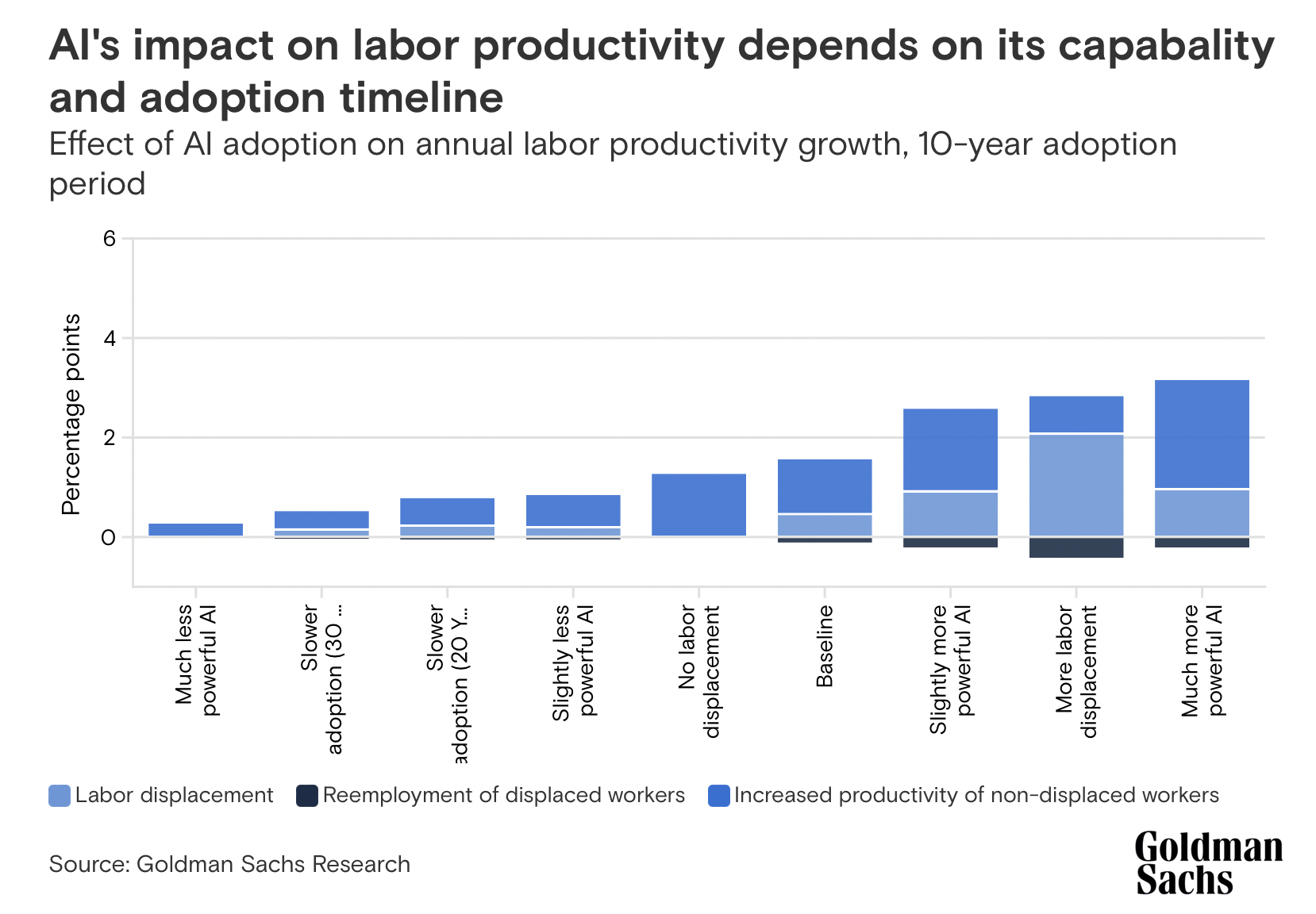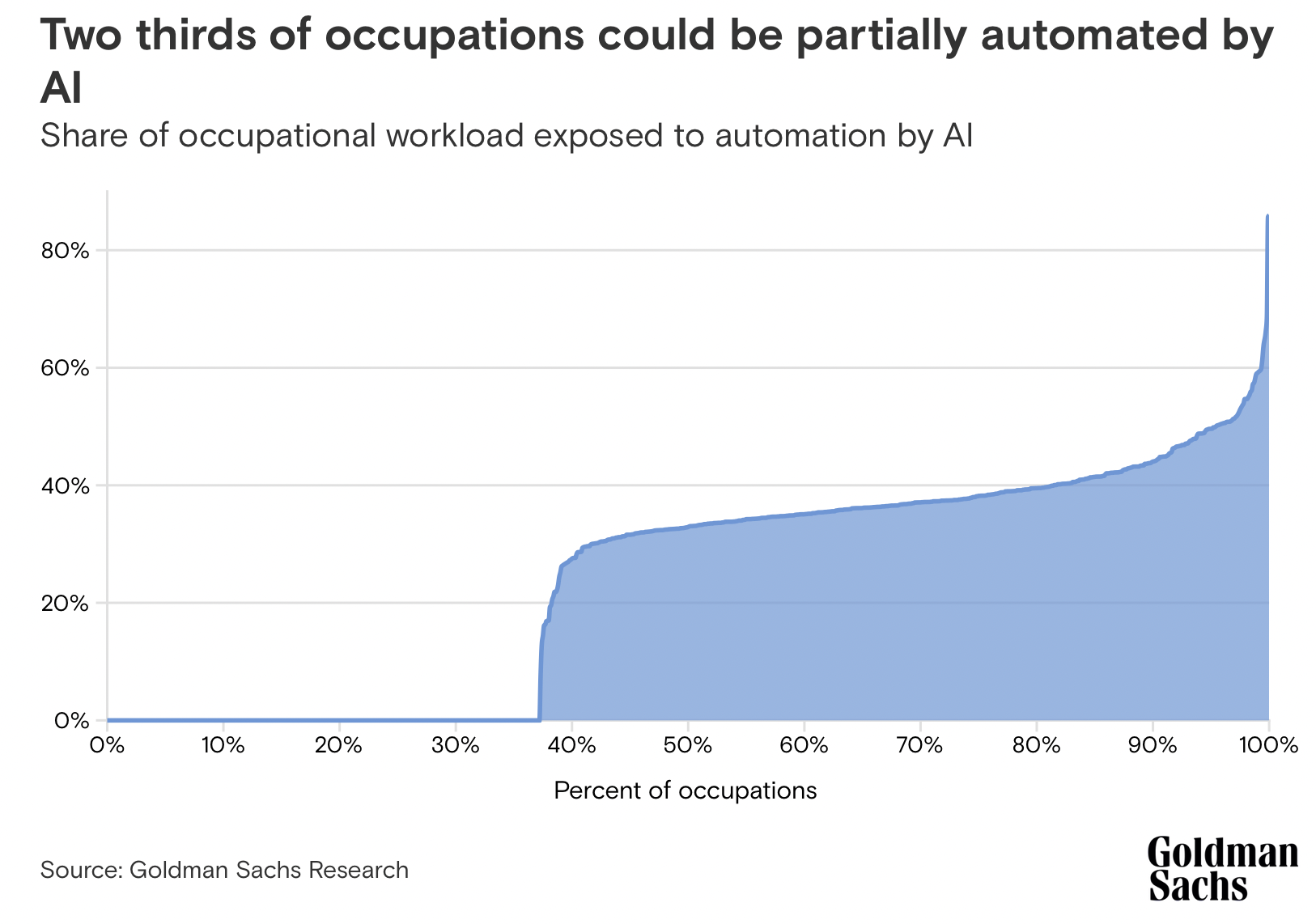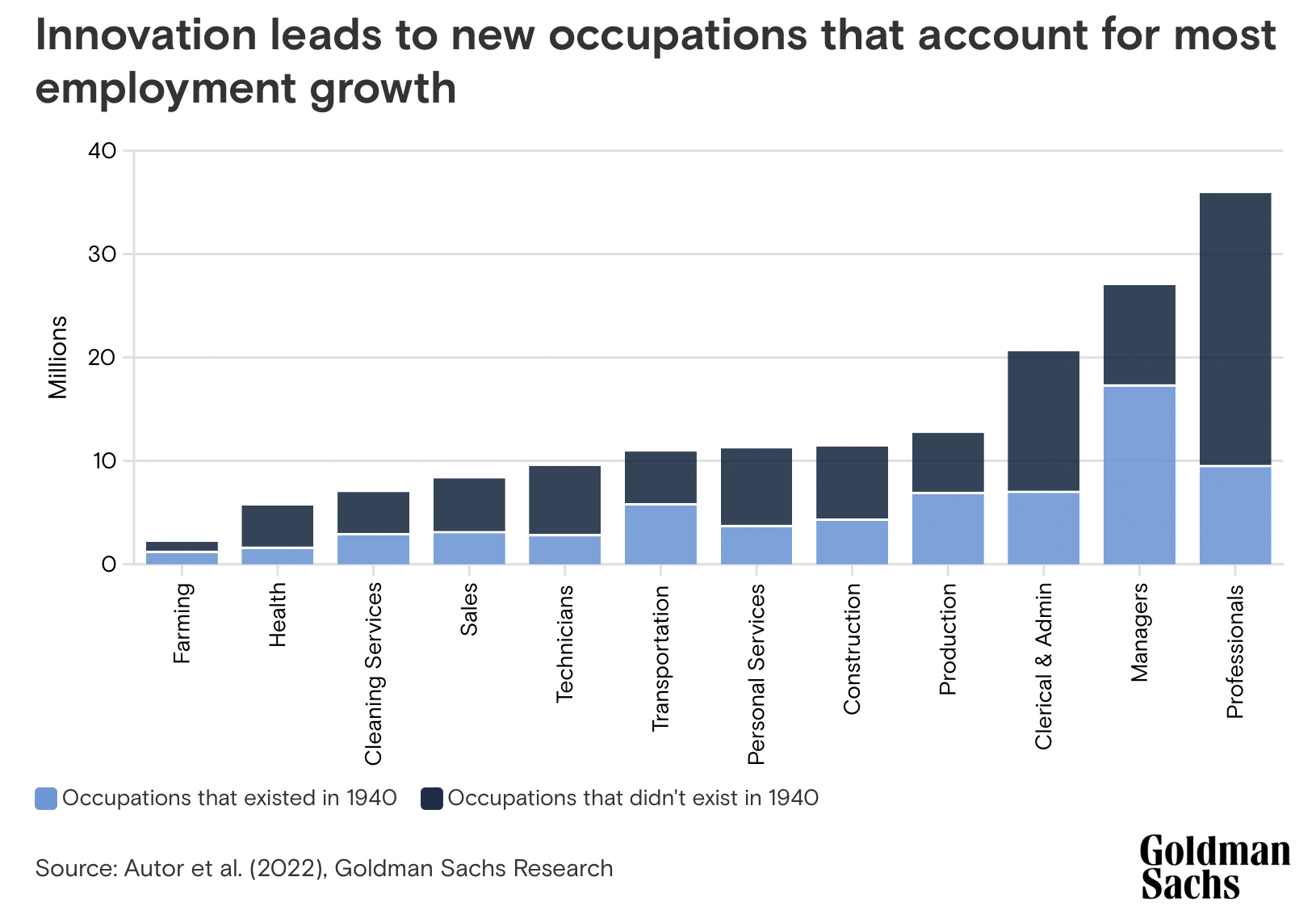GOLDMAN SACHS. Generative AI could raise global GDP by 7%. 05 APR 2023
Breakthroughs in generative artificial intelligence have the potential to bring about sweeping changes to the global economy, according to Goldman Sachs Research. As tools using advances in natural language processing work their way into businesses and society, they could drive a 7% (or almost $7 trillion) increase in global GDP and lift productivity growth by 1.5 percentage points over a 10-year period.
“Despite significant uncertainty around the potential for generative AI, its ability to generate content that is indistinguishable from human-created output and to break down communication barriers between humans and machines reflects a major advancement with potentially large macroeconomic effects,” Goldman Sachs economists Joseph Briggs and Devesh Kodnani write in a report.

A new wave of AI systems may also have a major impact on employment markets around the world. Shifts in workflows triggered by these advances could expose the equivalent of 300 million full-time jobs to automation, Briggs and Kodnani write.
Analyzing databases detailing the task content of over 900 occupations, our economists estimate that roughly two-thirds of U.S. occupations are exposed to some degree of automation by AI. They further estimate that, of those occupations that are exposed, roughly a quarter to as much as half of their workload could be replaced. But not all that automated work will translate into layoffs, the report says. “Although the impact of AI on the labor market is likely to be significant, most jobs and industries are only partially exposed to automation and are thus more likely to be complemented rather than substituted by AI,” the authors write.

In addition, jobs displaced by automation have historically been offset by the creation of new jobs, and the emergence of new occupations following technological innovations accounts for the vast majority of long-run employment growth, according to the report. For example, information-technology innovations introduced new occupations such as webpage designers, software developers and digital marketing professionals. There were also follow-on effects of that job creation, as the boost to aggregate income indirectly drove demand for service sector workers in industries like healthcare, education and food services.
A recent study by economist David Autor cited in the report found that 60% of today’s workers are employed in occupations that didn’t exist in 1940. This implies that more than 85% of employment growth over the last 80 years is explained by the technology-driven creation of new positions, our economists write.

At the same time, advances in AI are expected to have far-reaching implications for the global enterprise software, healthcare and financial services industries, according to a separate report from Goldman Sachs Research. With well-known tech giants poised to roll out their own generative AI tools, the enterprise software industry appears to be embarking on the next wave of innovation, after the development of the internet, mobile and cloud computing transformed the ways we operate as a society.
“Generative AI can streamline business workflows, automate routine tasks and give rise to a new generation of business applications,” Kash Rangan, senior U.S. software analyst in Goldman Sachs Research, writes in the team’s report. The technology is making inroads in business applications, improving the day-to-day efficiency of knowledge workers, helping scientists develop drugs faster and accelerating the development of software code, among other things.
Software companies are already arming their product portfolios with new generative AI offerings. Software-as-a-service firms, for example, are using it to open opportunities for upselling and cross-selling product and increasing their customer retention and expansion, the authors note. They see multiple ways that such businesses can leverage generative AI for growth: 1) through new production and application releases, 2) by charging premiums for AI-integrated offerings, and 3) by increasing prices over time as existing products are supplemented with AI-enabled features and prove their value to customers. Added up, GS Research estimates the total addressable market for generative AI software to be $150 billion, compared with $685 billion for the global software industry.
As more generative AI tools are developed and layered into existing software packages and technology platforms, the team sees businesses across the economy benefiting, from enhancing office productivity and sales efforts, to the design of buildings and manufactured parts, to improving patient diagnosis in healthcare settings, to detecting cyber fraud.
While much is unknown about how generative AI will influence the world economy and society, and it will take time to play out, there are clear signs that the effects could be profound.
This article is being provided for educational purposes only. The information contained in this article does not constitute a recommendation from any Goldman Sachs entity to the recipient, and Goldman Sachs is not providing any financial, economic, legal, investment, accounting, or tax advice through this article or to its recipient. Neither Goldman Sachs nor any of its affiliates makes any representation or warranty, express or implied, as to the accuracy or completeness of the statements or any information contained in this article and any liability therefore (including in respect of direct, indirect, or consequential loss or damage) is expressly disclaimed.


